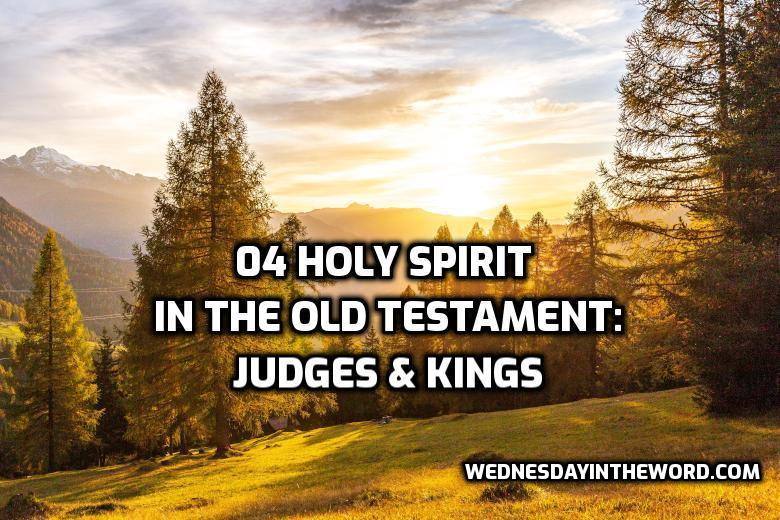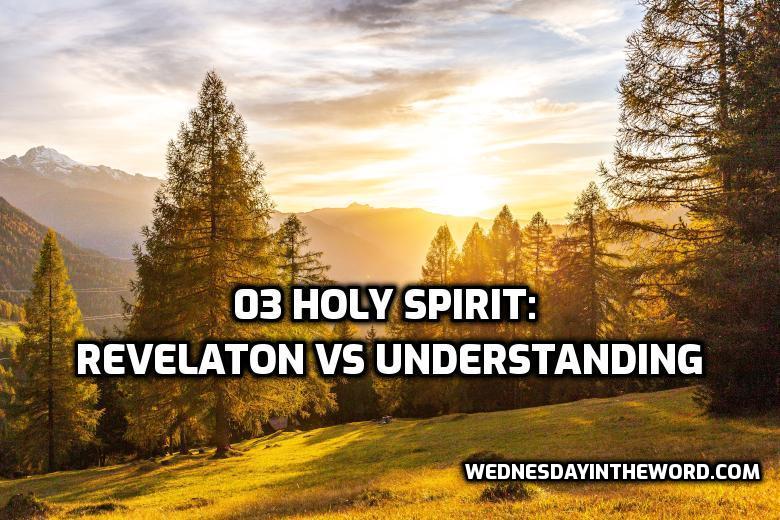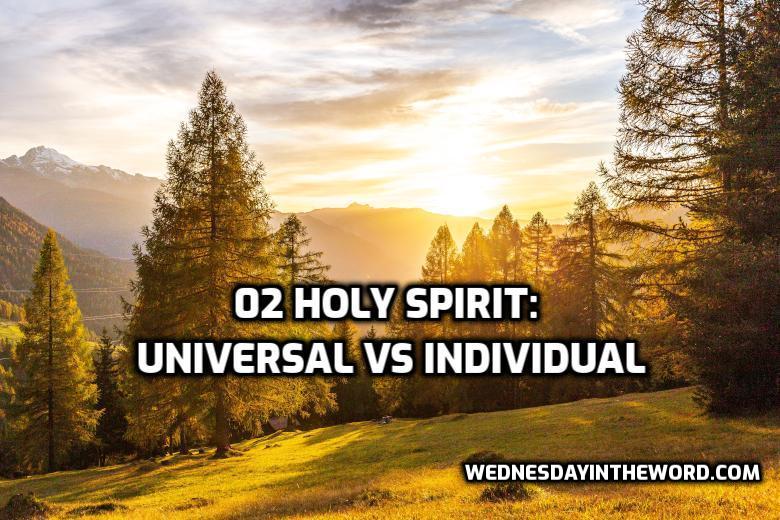
10 Holy Spirit: Baptism
While this topic is controversial, I think Scripture teaches that the baptism of the Holy Spirit has both an individual application (as applied to the apostles) and a universal application (as applied to all believers).

While this topic is controversial, I think Scripture teaches that the baptism of the Holy Spirit has both an individual application (as applied to the apostles) and a universal application (as applied to all believers).

As Paul deals with the issue of the “weaker” brother, he makes an important point about unity and the power of the Holy Spirit at work in all believers. Unity is not something that can be imposed from the outside or the top down. Unity is a work of the Holy Spirit bringing individuals together through their shared faith.

As a new believer, I thought the Holy Spirit was like the “force” in Star Wars: something I had to access to find success. Paul has a different view in this passage. The Holy Spirit is the active love of God intervening to make us people who will persevere in faith.

Paul describes believers as sealed with the Holy Spirit. A seal fulfills a past promise and pledges a future inheritance. A King’s seal had a three-fold purpose: 1) to guarantee authenticity, 2) to name the rightful owner, and 3) to protect from being tampered with or harmed.

Both the Old and New Testaments speak about the need for God to spiritually renew us and change our hearts. Both associate this spiritual renewal with the Spirit of God. But there is only one really clear Old Testament passage on this topic.

Most of the Old Testament references to the Holy Spirit involve his work empowering the leaders of Israel to protect the nation. But a second way we see the Spirit of God working in the Old Testament is giving revelation to the prophets.

One of the main themes in the Old Testament regarding the Holy Spirit is that God empowers Israel’s leaders through His Spirit to bless the nation and keep His covenant promises.

In 1Corinthians 2, we learn two more important works of the Spirit: 1) The Spirit reveals the thoughts of God to His chosen messengers. This is revelation. 2) The Spirit gives understanding to all believers so that we embrace the claims of the gospel.

1Corinthians 12 teaches an important distinction between the type of work the Holy Spirit does. The “universal” work of the Holy Spirit is a work that he does for all believers to bring about the inner transformation of faith. The “individual” works of the Holy Spirit are works he does in some believers but not others.

In John 3:1-8, we learn two themes that we will see repeatedly in this series: 1) The Holy Spirit is God’s agent of change, and 2) one of his most crucial works is the inner transformation of believers.

Both Jesus and the Apostle Paul give extraordinary importance to the giving of the Holy Spirit. Why? In this series we’ll look study a variety of passages with the goal of understanding who the Holy Spirit is and why he is something we need.

Resources to help you study the role and nature of the Holy Spirit.